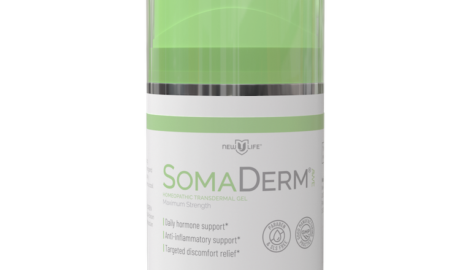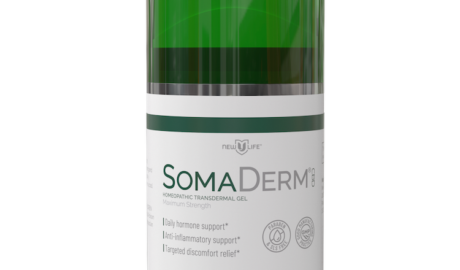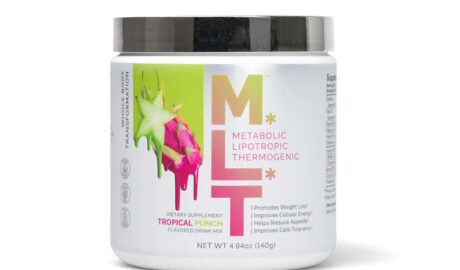Robert F. Kennedy Jr.’s latest spin on MAGA, “Make frying oil tallow again,” is surprisingly straightforward for a man who has spent decades downplaying his most controversial opinions. Last month, Kennedy argued in an Instagram post that Americans were healthier when restaurants such as McDonald’s cooked fries in beef tallow—that is, cow fat—instead of seed oils, a catchall term for common vegetable-derived oils including corn, canola, and sunflower. Americans, he wrote, are “being unknowingly poisoned” by seed oils; in his view, we’d all be better off cooking with solid fats such as tallow, butter, and lard. In a video that Kennedy posted on Thanksgiving, he deep-fries a whole turkey in beef tallow and says, “This is how we cook the MAHA way.”
Cardiologists shuddered at the thought. Conventional medical guidance has long recommended the reverse: less solid fat, more plant oils. But in recent years, a fringe theory has gained prominence for arguing that seed oils are toxic, put into food by a nefarious elite—including Big Pharma, the FDA, and food manufacturers—to keep Americans unhealthy and dependent. Most nutrition scientists squarely dismiss this idea as a conspiracy theory. But the movement probes some unresolved, fundamental questions about nutrition. Are saturated fatty acids—the kind in animal fat—actually dangerous? And are polyunsaturated ones—found in plant-derived oils—really all that great for your heart? The fact that these debates remain unsettled does not validate Kennedy’s view on fats, which represents a complete reversal of conventional health beliefs. But it does leave plenty of room for his philosophy to proliferate.
When McDonald’s started using beef tallow in the 1950s, relatively little was known about the relationship between fat and heart health. Tallow was used because it was cheap and tasty. Previous animal studies had already hinted at a link between fat intake and heart disease. Subsequent research on humans pegged the correlation to saturated fat, which comes from animals and is typically solid at room temperature. In contrast, polyunsaturated fat, which is derived from plants and is generally liquid at room temperature, was found to reduce levels of the “bad” LDL cholesterol associated with increased risk of heart disease. By the 1970s, a large body of research had demonstrated that the typical American diet, high in saturated fat and cholesterol, was associated with a high risk of heart disease. The first U.S. dietary guidelines, released in 1980, recommended reducing total fat, saturated fat, and cholesterol. (They also advocated for eating more carbohydrates, which backfired.) In 1988, a Nebraska-based businessman launched a passionate nationwide crusade calling on McDonald’s to end its use of tallow and stop its “poisoning of America.” (This rhetoric, like Kennedy’s, is an exaggeration, but at least it was rooted in reality.) In 1990, McDonald’s switched to 100 percent vegetable oil, as did chains such as Wendy’s and Burger King.
The shift from saturated to polyunsaturated fats—not just in restaurants but in home kitchens—corresponded with major health gains in the United States. In 1962, Americans began to consume more vegetable fats, largely in the form of margarine; four years later, cardiovascular deaths began a decades-long decline. From 1940 to 1996, deaths from heart disease fell by 56 percent, and they continued falling through 2013, albeit at a lower rate. Although the decline can be partly attributed to factors such as better blood-pressure control and lower rates of smoking, “the increase in polyunsaturated fat is probably one of the primary factors, if not the primary factor, in dramatically reducing heart-disease death” as well as lowering the risk of diabetes, dementia, and total mortality, Walter Willett, a Harvard professor of nutrition and epidemiology, told me.
The research has continued to bear out the dangers of saturated fats—and, crucially, the benefits of replacing them with polyunsaturated ones. The most recent version of the U.S. dietary guidelines caps saturated fat intake at roughly 20 grams a day. Federal guidance holds that “the best way to protect your health is not just to limit saturated fat—it’s to replace it with healthier unsaturated fats.” That is to say, no one should be replacing their seed oils with beef tallow.
The arguments in favor of saturated fats can largely be split into three categories. The first questions the validity of the research that established the harms of saturated fats. Two commonly cited meta-analyses—studies of existing studies—published in 2010 and 2014 concluded that the evidence for consuming less saturated fat and more polyunsaturated fat was inconclusive. Both stoked fiery debates and rigorous scrutiny. A correction to the 2014 study essentially nullified its findings. Neither study accounted for what people ate in place of saturated fat. More to the point, the authors of these studies questioned the existing consensus on dietary fats—but did not call for the total elimination of seed oils from the American diet.
The second category alleges the harms of seed oil. Some tallow truthers claim that consuming too much omega-6, a polyunsaturated fatty acid commonly found in seed oils, allows it to outcompete its more healthful cousin, omega-3, which is found in nuts and fish. But, according to Willett, the body’s regulatory mechanisms prevent such imbalances, and viewing individual fatty acids as competitors is “an extreme oversimplification of what actually goes on in our metabolic system.” The physician Catherine Shanahan’s book Dark Calories, an exhaustive account of the arguments against seed oil, posits that polyunsaturated seed oils promote oxidative stress, which drives all disease. When I asked Shanahan, popularly known as Dr. Cate, why this was not reflected in the existing scientific literature, she questioned its credibility. “They haven’t seen all the data,” she told me. “They’ve only seen what we’ve been fed.” Another popular wellness influencer known as Carnivore Aurelius, who advocates for an all-meat diet, has claimed without evidence that seed oils are “toxic sludge” that disrupts the functioning of mitochondria.
The third category, which is perhaps the most puzzling, comprises a bona fide enthusiasm for tallow—which, to be fair, makes a delicious french fry. Tallow, according to certain corners of the internet, can drive weight loss, boost the immune system, and improve cognition. (No substantial evidence exists to support any of these claims.) Americans aren’t just eating beef tallow—they’re also smearing it on their faces as a supposedly natural alternative to conventional moisturizer, despite a lack of scientific evidence, and, sometimes, the faint smell of cow.
The crux of the anti-seed-oil, pro-tallow position is a belief that the medical consensus on dietary fats is compromised by financial interests—of the seed-oil and medical industries, of universities, of the government. Suspicion of corporate interests is central to Kennedy’s views on health in general. His campaign to “Make America healthy again” is rooted in stamping out corruption in government health agencies. As I wrote previously, this anti-establishment attitude resonates throughout the wellness space: among seed-oil truthers, sure, but also proponents of raw milk, carnivorism, and alternative nutrition in general. Arguments for these dietary choices have been endlessly debunked by mainstream scientists and journalists. But such corrections will hold little sway over people who fundamentally distrust the data they are based on.
For Kennedy and his supporters, the science isn’t really the point—bucking convention is. Rejecting the consensus about saturated fats makes a political statement. (As a bonus, it creates a market for Make Frying Oil Tallow Again crop tops, trucker caps, and dog bandanas.) But as far as scientists can tell, it’s not going to make anyone healthier. Between potatoes deep-fried in tallow or in seed oils, the latter is “for sure better,” Willett said. Still, no matter your political stance, no french fry is ever going to be healthy.
About the Author
Yasmin Tayag is a staff writer at The Atlantic.
More Stories
Your Armpits Are Trying to Tell You Something
‘Make America Healthy Again’ Sounds Good Until You Start Asking Questions
Explore More TopicsInstagram, Robert F. Kennedy Jr.





